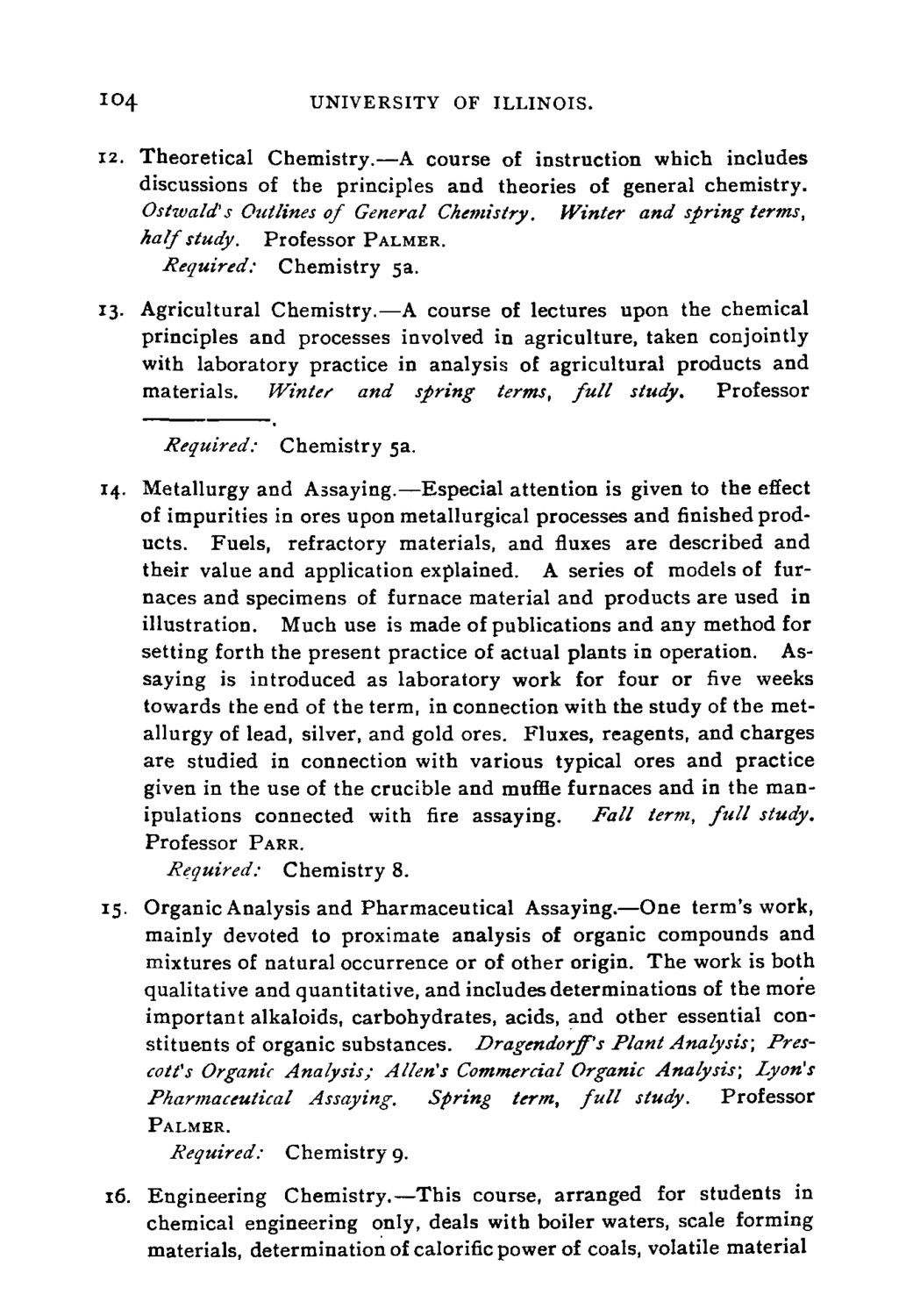| |
| |
Caption: Course Catalog - 1893-1894
This is a reduced-resolution page image for fast online browsing.

EXTRACTED TEXT FROM PAGE:
104 UNIVERSITY OF ILLINOIS. 12. Theoretical Chemistry.—A course of instruction which includes discussions of the principles and theories of general chemistry. Ostwald's Outlines of General Chemistry. Winter and spring terms, half study. Professor PALMER. Required: Chemistry 5a. 13. Agricultural Chemistry.—A course of lectures upon the chemical principles and processes involved in agriculture, taken conjointly with laboratory practice in analysis of agricultural products and materials. Winter and spring terms, full study. Professor Required: Chemistry 5a. 14. Metallurgy and Assaying.—Especial attention is given to the effect of impurities in ores upon metallurgical processes and finished products. Fuels, refractory materials, and fluxes are described and their value and application explained. A series of models of furnaces and specimens of furnace material and products are used in illustration. Much use is made of publications and any method for setting forth the present practice of actual plants in operation. Assaying is introduced as laboratory work for four or five weeks towards the end of the term, in connection with the study of the metallurgy of lead, silver, and gold ores. Fluxes, reagents, and charges are studied in connection with various typical ores and practice given in the use of the crucible and muffle furnaces and in the manipulations connected with fire assaying. Fall term, full study. Professor PARR. Required: Chemistry 8. 15. Organic Analysis and Pharmaceutical Assaying.—One term's work, mainly devoted to proximate analysis of organic compounds and mixtures of natural occurrence or of other origin. The work is both qualitative and quantitative, and includes determinations of the more important alkaloids, carbohydrates, acids, and other essential constituents of organic substances. Dragendorff's Plant Analysis; Prescott's Organic Analysis; Allen's Commercial Organic Analysis; Lyon's Pharmaceutical Assaying. Spring term, full study. Professor PALMER. Required: Chemistry 9. 16. Engineering Chemistry.—This course, arranged for students in chemical engineering only, deals with boiler waters, scale forming materials, determination of calorific power of coals, volatile material
| |